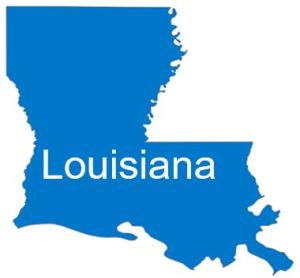Updated Nov 11, 2020
In addition to voting for elected officials this November, voters in three states will also cast their votes on four ballot measures that could play a significant role in shaping policies and programs that affect women’s health and well-being.
Voters in Colorado and Louisiana will vote on measures restricting access to abortion, those in Washington state will vote on whether to require sex education in public school curriculums, and voters in Colorado will decide whether the state will join 8 other states and D.C. in creating a paid family and medical leave program for its workers.
This brief summarizes each of these ballot measures and their implications.
22 Week Abortion Ban: Colorado
 |
Name: Proposition 115 (End Late Term Abortions in Colorado)
Description: Prohibits abortion in Colorado after fetus reaches 22-weeks gestational age.
Implications:
- Colorado does not currently have a gestational limit for abortion.
- If passed, abortion would only be permitted beyond 22-weeks in cases of immediate, physical life endangerment of the pregnant person. Those seeking an abortion after this timeframe would have to travel to another state to obtain a legal abortion. Currently, 17 states have a similar gestational limit, which is more restrictive than the standard of viability established by Roe v. Wade.
- Performing or attempting to perform a prohibited abortion in Colorado would be a Class 1 misdemeanor, punishable by a fine and 3-year suspension of state medical license. People on whom a prohibited abortion is performed would not be charged with a crime.
- Outcome: Rejected
|
No State Constitutional Right to Abortion: Louisiana
 |
Name: Amendment 1 (House Bill 425/Love Life Amendment)
Description: Adds language to the Louisiana state constitution clarifying that there is no right to abortion or abortion funding.
Implications:
- If the U.S. Supreme Court were to overturn Roe v. Wade, which holds that under the U.S. Constitution, abortion may not be banned before fetal viability, regulation of abortion would be returned to the states.
- States that do not have constitutional or statutory provisions safeguarding abortion rights could further restrict or prohibit abortion.
- If Roe v. Wade is overturned or a future Supreme Court decision gives states more leeway to enact restrictions on abortion, this constitutional amendment would open the door to future state legislation that could block or severely restrict access to abortion in Louisiana.
- Outcome: Approved
|
Sex Education in Public Schools: Washington
 |
Name: Referendum 90 (Senate Bill 5395)
Description: Would require Washington public schools to provide comprehensive sexual health education for all students. The Washington legislature passed and the governor signed the law (SB 5395) in March 2020. Voters were asked whether to uphold or repeal the law.
Implications:
- Washington state law does not currently require comprehensive sex education to be taught in public schools, though local school boards may choose to provide it.
- If approved, the referendum would require public school students in Kindergarten through 12th grades to receive age-appropriate, comprehensive instruction in human development and reproduction, including affirmative consent and bystander training.
- Would require students to be excused if requested by their parents.
- Outcome: Approved
|
Paid Family and Medical Leave: Colorado
 |
Name: Proposition 118
Description: Establishes a paid family and medical leave insurance program that provides up to 12 weeks of job-protected, paid leave for qualified reasons including to care for own serious health condition or that of a family member, and to care for a new child. Additional 4 weeks provided for pregnancy or childbirth complications. Funded through a payroll tax evenly split between employers and employees.
Implications:
- It is estimated that 80% of Coloradans currently do not have access to paid family and medical leave. An estimated 2.6 million Coloradans would benefit from this program.
- Benefit covers 90% of average weekly wage for those who earn 50% or less of the state average, and up to 50% for those that earn more than 50% of the state average.
- Workers who elect coverage are eligible for paid leave after earning $2,500, but must have worked for the employer for at least 6 months for job protection. Covered employees would retain their employer-sponsored health insurance if they were already enrolled. Local governments may opt out of the program, but employees may still elect coverage. Employers with fewer than 10 employees would be exempt from paying the premium, though covered employees would still have access to the benefit. Self-employed individuals are also eligible.
- Outcome: Approved
|
Looking Forward
Initiatives that seek to restrict access to abortion may garner renewed attention and urgency if a new conservative majority on the U.S. Supreme Court rules to permit more state regulations of abortion or to overturn Roe v. Wade, eliminating the constitutional right to abortion and allowing states to make their own policies regarding abortion access. Alternatively, this could encourage some states to seek to affirm abortion rights. Additionally, the coronavirus pandemic has put a spotlight on the importance of paid leave, and state legislative efforts or ballot initiatives creating paid sick and family leave programs are likely to continue even after the pandemic subsides.




